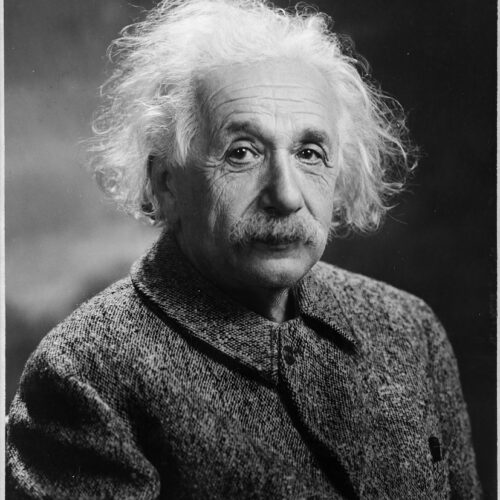

How strange is the lot of us mortals! Each of us is here for a brief sojourn; for what purpose he knows not, though he sometimes thinks he senses it. But without deeper reflection one knows from daily life that one exists for other people – first of all for those upon whose smiles and well-being our own happiness is wholly dependent, and then for the many, unknown to us, to whose destinies we are bound by the ties of sympathy.
Albert Einstein, The World as I See It (1935)
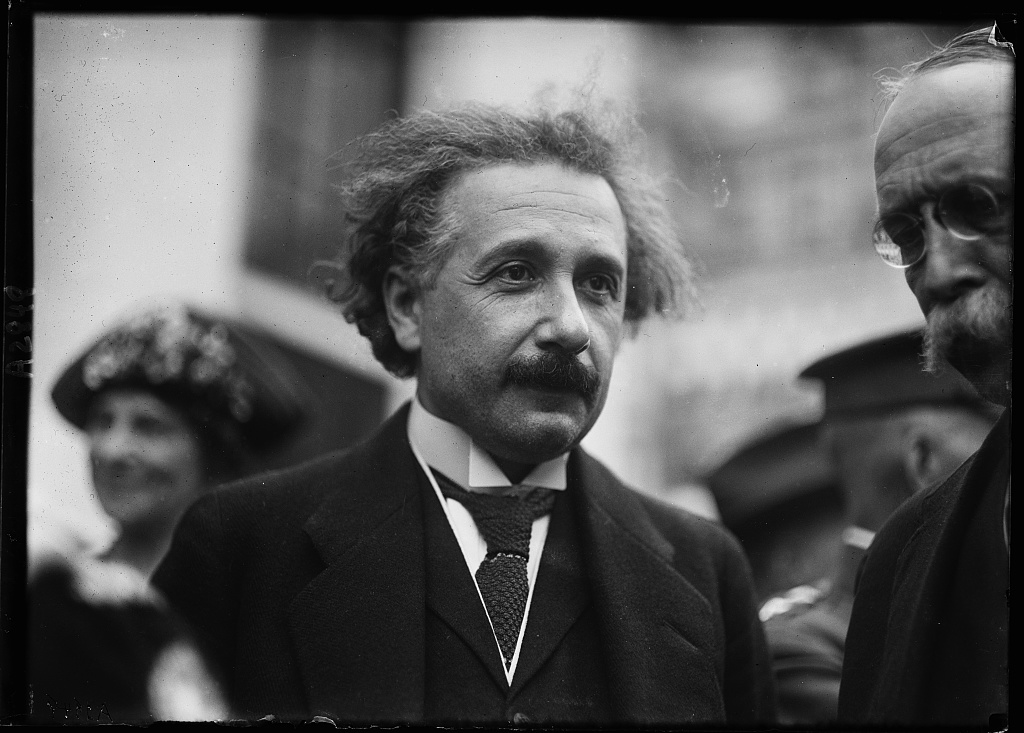
Albert Einstein was a German theoretical physicist and history’s most famous scientist. He was also a passionate humanist, who actively supported the Ethical Culture movement in the US, was a founder member of the First Humanist Society of New York, and an Honorary Associate of the Rationalist Press Association in the UK. Einstein wrote eloquently about his philosophy, which had human possibility and fellowship at its heart. Awarded the Nobel Prize in Physics in 1921, in 1955 he co-authored with fellow humanists Bertrand Russell and Joseph Rotblat a manifesto calling for peace and disarmament, prompting the creation of the Pugwash Conferences on Science and World Affairs, which would go on to win a Nobel Peace Prize four decades later.
This central belief in the need for humanity in science – in the application of reason and compassion to curb the dangerous excesses of human ambition – is a key part of Einstein’s legacy, though his humanist convictions have been all too frequently left out of narratives of his genius.
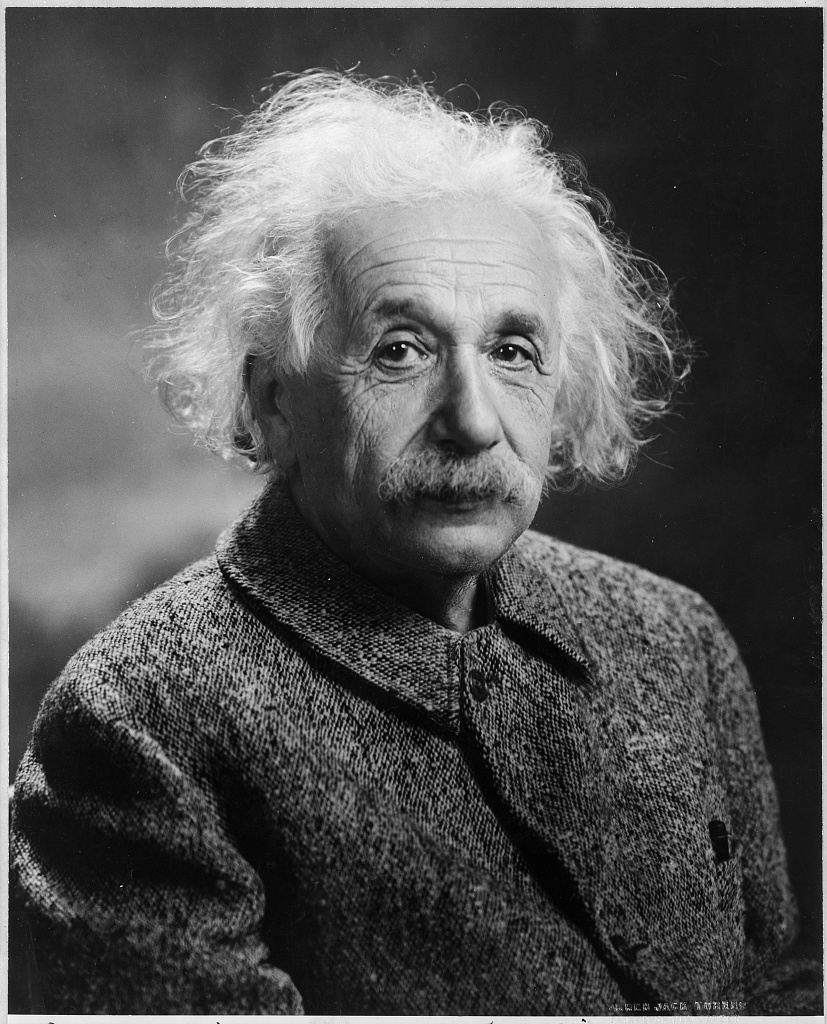
Albert Einstein was born in Ulm, Germany, and raised in Munich, in a secular Jewish home. Fascinated from an early age by science and the forces of nature, he had an unusual and disrupted education, but was a devoted autodidact. For seven years from 1902 he worked in a patent office, during which time he earned his doctorate and – in 1905, his so-called ‘miracle year’ – published the papers which would profoundly alter our understanding of space and time. As the editor of the Literary Guide (now the New Humanist) would write on his death in 1955, Einstein’s was a ‘combination of imaginative boldness and humility before facts’, which cemented his reputation as a pioneering scientific thinker, and a model of the humanist approach.
Though his scientific achievements are widely, and rightly, known, Einstein’s contributions to the literature of humanism, and to efforts towards peace and international cooperation, are often less well-documented. As well as famed works such as his Special Theory of Relativity (1905), General Theory of Relativity (1916), and The Evolution of Physics (1938), Einstein wrote The World as I See It (1935) and Essays in Humanism (1950), giving voice to his philosophical ideals. In this latter collection, he outlined his belief that:
…the most important factor in giving shape to our human existence is the setting up and establishment of a goal; the goal being a community of free and happy human beings who by constant inward endeavor strive to liberate themselves from the inheritance of anti-social and destructive instincts. In this effort the intellect can be the most powerful aid. The fruits of intellectual effort, together with the striving itself, in cooperation with the creative activity of the artist, lend content and meaning to life.
‘The Goal of Human Existence’ in Essays in Humanism
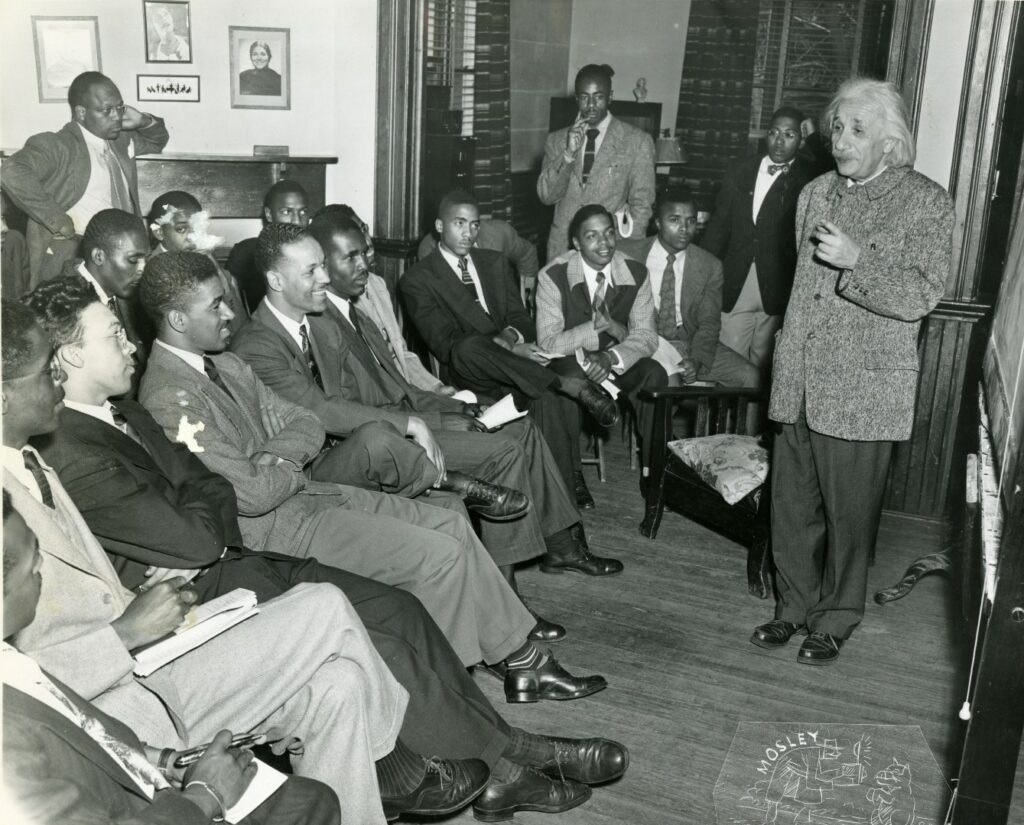
This sense of collective striving for greater freedom, happiness, and meaning, through knowledge and through art, underpinned Einstein’s outspoken support for world government, and for the Ethical movement. A longtime anti-militarist, Einstein had renounced his German citizenship in 1896, preferring to be ‘stateless’ rather than undertake military service. Later, he used his public profile to support calls for world disarmament, and to decry racism, drawing on his own experience of anti-semitism. During the 1930s and 1940s, now living in America, Einstein joined civil rights organisations including the National Association for the Advancement of Colored People (NAACP) and the American Crusade Against Lynching (ACAL), acting as co-chair for the latter, and lobbying for federal anti-lynching legislation alongside its founder Paul Robeson. In a commencement address for the historically black Lincoln University, Pennsylvania, he stated (using the term then generally accepted):
There is separation of colored people from white people in the United States. That separation is not a disease of colored people. It is a disease of white people. I do not intend to be quiet about it.
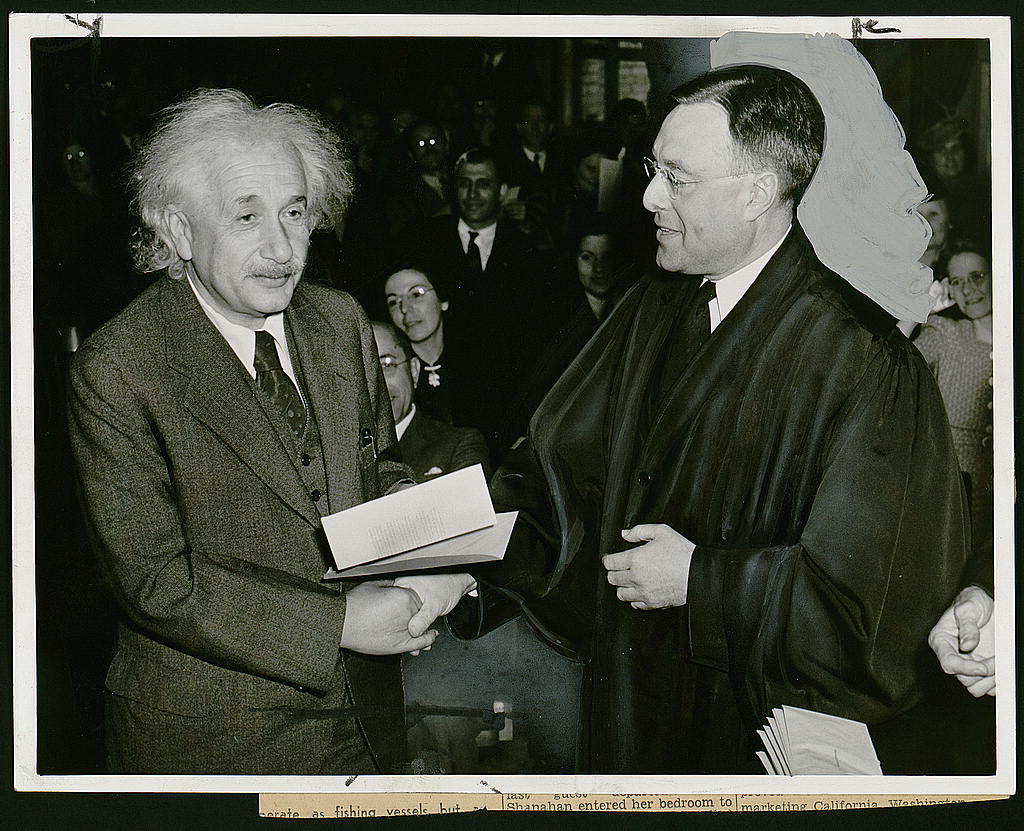
Einstein spent his final decades in the United States, employed at the Institute for Advanced Study in Princeton, New Jersey. In the final year of his life, he issued a joint manifesto with humanist and philosopher Bertrand Russell calling for nuclear disarmament, and containing the immortal plea to world leaders: ‘Remember your humanity, and forget the rest’. This echoed Einstein’s belief, expressed in congratulating the New York Society for Ethical Culture on 75 years in existence, that ‘Without ‘ethical culture’ there is no salvation for humanity’. Without bringing human sympathy to bear on science, Einstein believed, the pursuit of the ‘eternally unattainable’ was empty.
Albert Einstein died on 18 April 1955, having refused surgery to prolong his life. He met death calmly, telling his secretary and companion Helen Dukas, ‘I have to pass on sometime’. A famous photo of his desk at the time of his death shows the Rationalist Association’s latest periodical, today’s New Humanist magazine, sitting at the top of his to-read pile.
I do not believe in a personal God and I have never denied this… If something is in me which can be called religious then it is the unbounded admiration for the structure of the world so far as our science can reveal it.
Albert Einstein (1954)
Albert Einstein was an innovative and imaginative scientist, whose pursuit of knowledge and fascination with the world gave rise to world-altering theories, and eloquent expressions of humanism. Einstein believed in the human responsibility for the world and for each other; in developing a moral system set apart from the supernatural; and in maintaining a sense of profound wonder, and active inquisitiveness, towards the universe at large. In setting reason, empathy, and principle at the heart of his philosophy, Einstein left a significant humanist legacy, and a remarkable reminder of the human side of science.
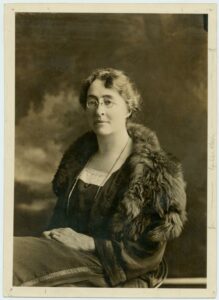
Mary Sheepshanks was a humanist who saw her feminist, pacifist, and cosmopolitan beliefs as being natural expressions of her humanist […]
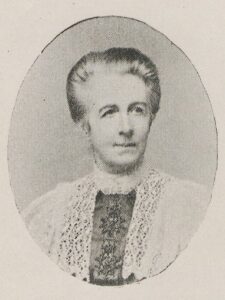
I have come to feel that the best proof of the subjection and degradation of my sex lies in the […]
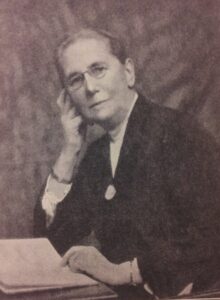
When we are asked to believe that nothing but a supernatural ideal can inspire and sustain a life-time of complete […]

Prior’s Field School was founded in 1902 by Julia Arnold Huxley. Born in 1862, Julia grew up in an intellectual […]